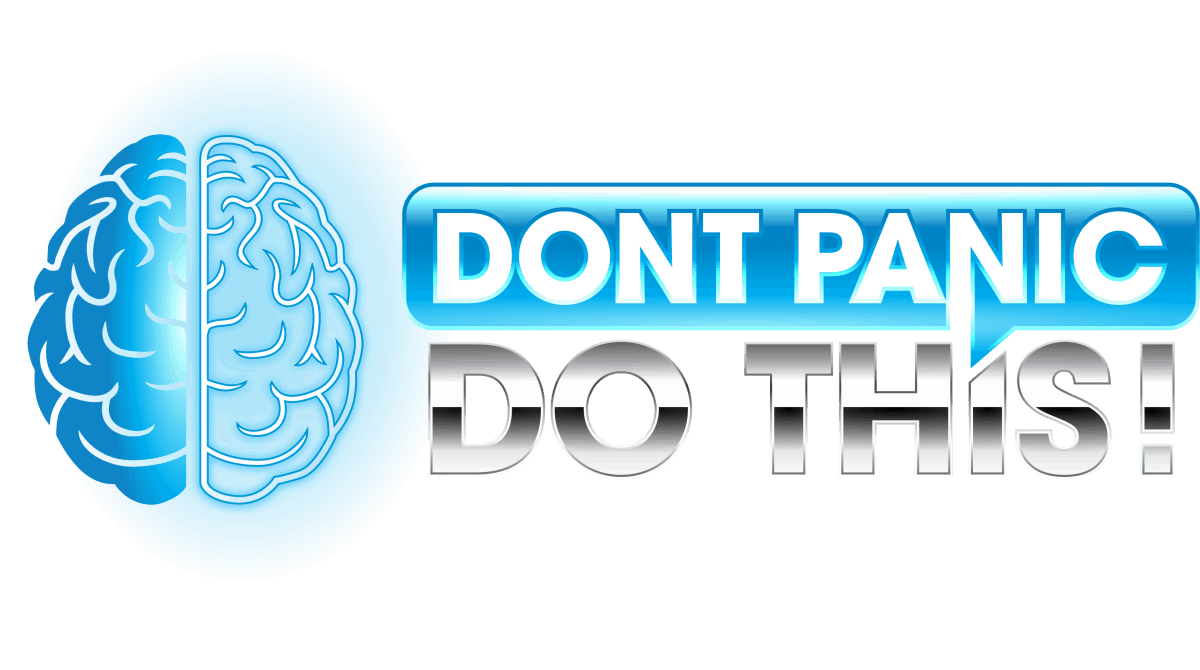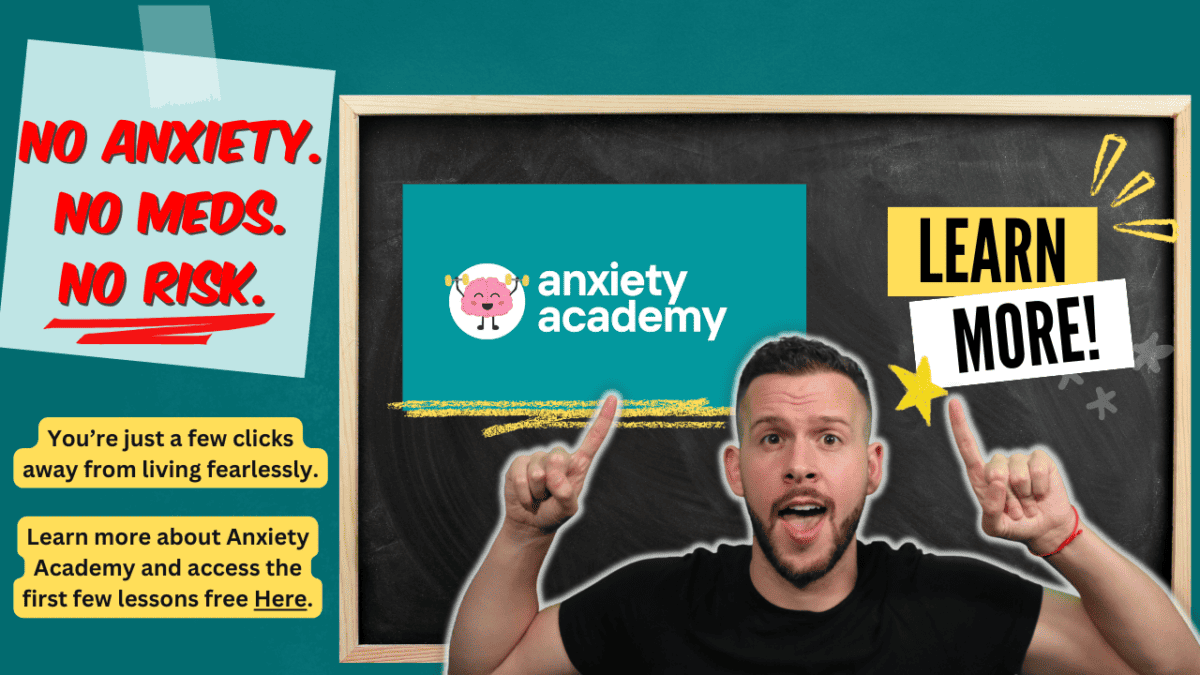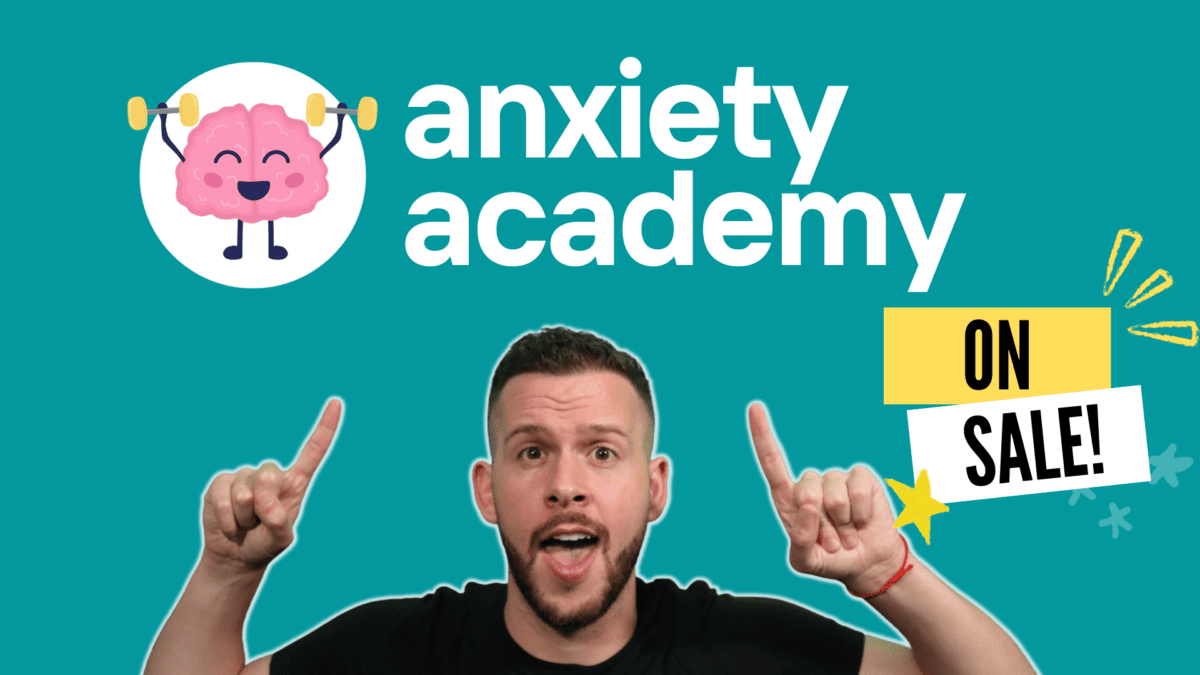I first started having panic attacks right around my sophomore year of high school. These panic attacks continued through college, forcing me to grapple with a difficult question... What do you do when you have a panic attack at school?
- Talk to the Teacher About Your Anxiety in Private
- Create a "Distracting Game" For Yourself
- Recover with a Bathroom Break
- Keep an Excuse Handy
- Volunteer More Often on Your Own Terms
Throughout this article, we'll explain each of these tricks in much greater detail.
But first, let's start with the basics.
You’re sitting in class, watching each student read a paragraph or two aloud before “popcorning” to the next person.
You know your turn is coming up soon, so you preemptively read your section over and over again in your head to get it right.
Just two more people before it’s your turn.
Your heart starts to race and your stomach feels like a pile of twisted knots. Is it too late to ask the teacher to use the restroom?
Just one more person before it’s your turn.
The knot in your stomach feels as though it’s climbing up into your throat. Your breathing starts to feel ragged.
It’s your turn.
Your palms are drenched with sweat as you struggle to read your section. Each word is an internal battle; it exhausts every ounce of your willpower just to get through the paragraph without darting for the door.
When it’s finally over, you look around the room sheepishly, wondering if anyone noticed the episode.
It’s done for now, but silently you dread the next time you’ll have a panic attack in class.
For people who suffer from panic attacks or severe anxiety, the above scenario is likely uncomfortably familiar.
Whether you’re in high school, college, or another place of learning, panic attacks are extremely common in the classroom.
So, why do you have panic attacks at school, and how can you stop them?
Let’s get to it!
Why do I Have Anxiety in School?
There are many reasons you may be having anxiety or panic attacks in school.
Frankly, even without an anxiety disorder, an academic environment can be pretty nerve-wracking to boot.
Painfully early mornings fueled by anxiety-inducing caffeine, frantic attempts at time-management divided amongst countless assignments, and brutal late-night cram sessions fueled by… more caffeine.
And don’t even get me started on the stress of trying to navigate the hellish social hierarchy that is high school cliques.
Add to this the complication of having an anxiety disorder or, even worse, a straight-up phobia tied to the classroom setting, and you’ve got a recipe for disaster.
It’s obvious why we might experience general anxiety and OCD in such a setting, but why might your anxiety be severe enough to have a panic attack at school?
Reason #1 - Social Anxiety at School
It’s hard to imagine an environment more conducive to social anxiety than a classroom. Social anxiety in high school, specifically, can be a special kind of nightmare. Hormones are wreaking havoc on our rapidly changing brains, all while we struggle to find our place on the proverbial totem pole.
These daily stresses can lead to any number of social phobias over time.
Glossophobia, or the fear of public speaking, is considered by many surveys to be one of the most common fears in the world (often ranked ahead of the fear of death itself!). Reading aloud, giving speeches, and presenting group projects can all trigger panic attacks for many students.
Other students may experience their anxiety triggers elsewhere. From performance anxiety in gym class, to social dynamic pressures in the cafeteria, school can be a hellscape to those with anxiety.
Reason #2 - Panic Disorder at School
When stress and anxiety get bad enough, they may manifest as a panic attack; a short-lived, but extremely intense and terrifying bout of anxiety.
In fact, panic attacks can be so frightening, they may even lead to something called panic disorder: literally a phobia where you fear repeat panic attacks so much you actually give yourself more panic attacks. Panic disorder can be a vicious cycle for many people.
Here’s how a student might develop glossophobia or panic disorder at school:
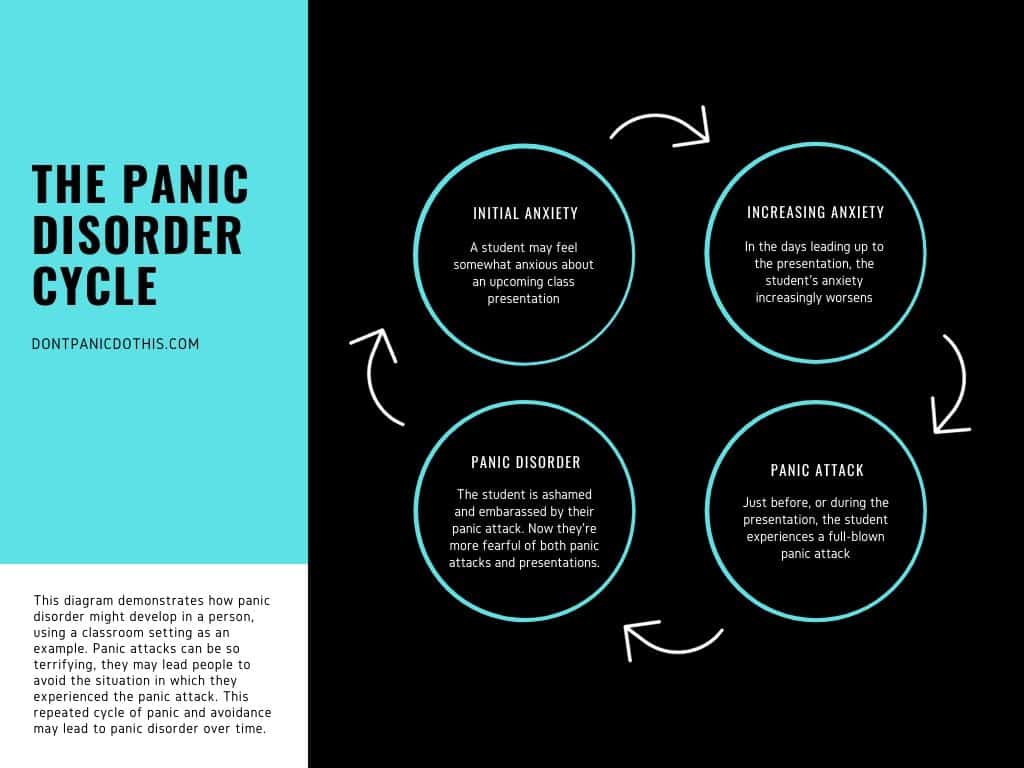
I’m using glossophobia as an example here, but this cycle can apply to just about any phobia.
Because school can have students with anxiety feeling trapped, small social anxieties can easily evolve into larger issues like panic disorder, or even agoraphobia.
So, what to do when you have a panic at school? (in addition to these anxiety preventing habits)
1. Talk to the Teacher About Your Anxiety in Private
The absolute first thing you should do is stop believing that it’s you against the world, here.
If your panic attacks have a specific trigger, you should have an honest conversation with your teacher or professor immediately.
If you’re wondering how to tell a professor you struggle with presentation anxiety or another form of classroom anxiety, just take a few minutes after class, or shoot them an email.
I know, I know. You’re embarrassed of your panic attacks and don’t want to talk to anyone about them.
Just trust me on this one, though.
Most teachers didn’t get into the education field because they wanted to watch students suffer. Most teachers genuinely want to help make a positive difference in your life.
Good teachers don’t take pleasure in watching the mental health of their students deteriorate before their eyes. Especially if they suspect that your anxiety could lead to you cutting class, skipping assignments, or dropping out entirely.
Whatever your trigger for panic attacks at school may be, talk to them honestly about it. It may be embarrassing, but it could save you a lot of stress in the long run.
Ideally, they’ll help to find a way to reasonably accommodate you.
Maybe they’ll stop calling on you when your hand isn’t raised.
Maybe they’ll stop asking you to read aloud to the class.
Maybe they’ll offer you alternative assignments rather than reading a speech in front of the class.
Due to the nature of their job, many teachers may not realize how stressful these things can be for students with anxiety. And they can’t help you if they don’t know you’re struggling. But, give them the chance, and you may be pleasantly surprised.
Taking this first step alone can help to drastically decrease the pressure put on you, making a panic attack far less likely to happen in the first place.
For additional help talking to your teacher about anxiety, I highly recommend sending them to this article on how teachers can help students with anxiety.




2. Create a "Distracting Game" for Yourself
One of the hardest parts about knowing what to do when you have a panic attack at school is the fact that many of our panic-reduction methods are limited there.
In this article about how to stop a panic attack, and this follow-up article as well, we discuss 10 effective methods.
However, several of these methods are difficult, if not impossible, to apply to the classroom setting.
Think about it:
You’re stuck in your seat. You can’t move. You can’t talk. You can’t use your phone.
It's an agoraphobe's nightmare!
One of the few things you can do is redirect your attention.
During a panic attack, your attention focuses inward. The voice in your head assaults your own sanity.
The best way to calm yourself down, is to find a way to direct your focus outward, to something else.
Obviously at this point you’re not paying attention to the lesson anymore, so what else can we focus on?
Try and create a game that you play in class that does a reasonable job of distracting you. What’s effective will vary from person to person.
Can you find an object in the room that starts with the letter A? How about the letter B? The letter C? There’s a distracting game for you.
How many little holes are in that ceiling tile? Lost count at 78? Start over. Isn’t this fun?
Not really, but the point is to get your attention focused on something other than your panic attack.
Write a poem, draw a cool sword, trace a hand-turkey in your notebook; you’ll figure it out.
These are just some random examples I thought of on the spot, but any distracting game will do.
Experiment a bit and see what works for you.




(I don't want to hear a single negative comment about my hand-turkey.)
3. Recover with a Bathroom Break
If you’re in high school, you may require a hall pass to leave the room, so this will work better after you’ve talked to your teacher about your anxiety.
If you’re in college, you probably have the luxury of coming and going as you please, but it doesn’t hurt for the professor to know what’s up.
A huge reason many people get panic attacks in class is due to the feeling that they’re trapped in a situation where they might embarrass themselves (agoraphobia).
During a panic attack, every fiber of your being is screaming for you to hit the eject button and escape your current environment. In the classroom, this can be difficult.
If you feel a panic attack coming on, take a bathroom break.
This will give you some time to yourself while you get things back under control.
Go the long route and clear your head. Do some pushups or jumping jacks in the bathroom (gross but effective). Splash some water on your face. Text a friend or watch a funny video on your phone.
Take a few minutes to do whatever it is you’ve got to do to calm down.
Return to class when you feel comfortable doing so.




4. Keep an Excuse Handy
Alright, this one may be a little bit controversial, but I’ve got a good reason behind it.
Basically, my suggestion is to keep a decent excuse handy in case worst comes to worst.
What do I mean by this?
Suppose your panic attack is due to a fear of reading aloud in class.
Your fear isn’t the reading aloud, it’s the fear of embarrassment caused by having a panic attack when you try to read aloud.
This is why my suggestion is to keep a good excuse handy; to help you save face in a worst-case panic scenario.
For example: If you tried to read aloud and started to have a panic attack…
You could say: “Sorry, my eyes have been bothering me today,” or, “I forgot my contacts."
I realize this may seem silly to some readers, but for high school or college students, embarrassment in front of their peers can feel like a fate worse than death.
Another example might be: If you were getting performance anxiety about gym class…
You could say: “Hey, I’m not feeling so well, I think I need to sit this one out,” or, “My ankle’s really bothering me today.”
Now, the important distinction here to remember is this.
Actually USING any of these excuses is a form of avoidant behavior; behavior that reinforces and worsens anxiety disorders over time.
My suggestion is not to USE these excuses. It’s to keep them in your back pocket; an ace up your sleeve, if you will. An “eject” button to help you save face when the alternative is the whole class seeing you have a panic attack.
Such “handy excuses” should be used as sparingly as possible. They aren’t meant to help you avoid situations, but rather to help you slowly branch out of your comfort zone; this is the best way to beat anxiety long-term.
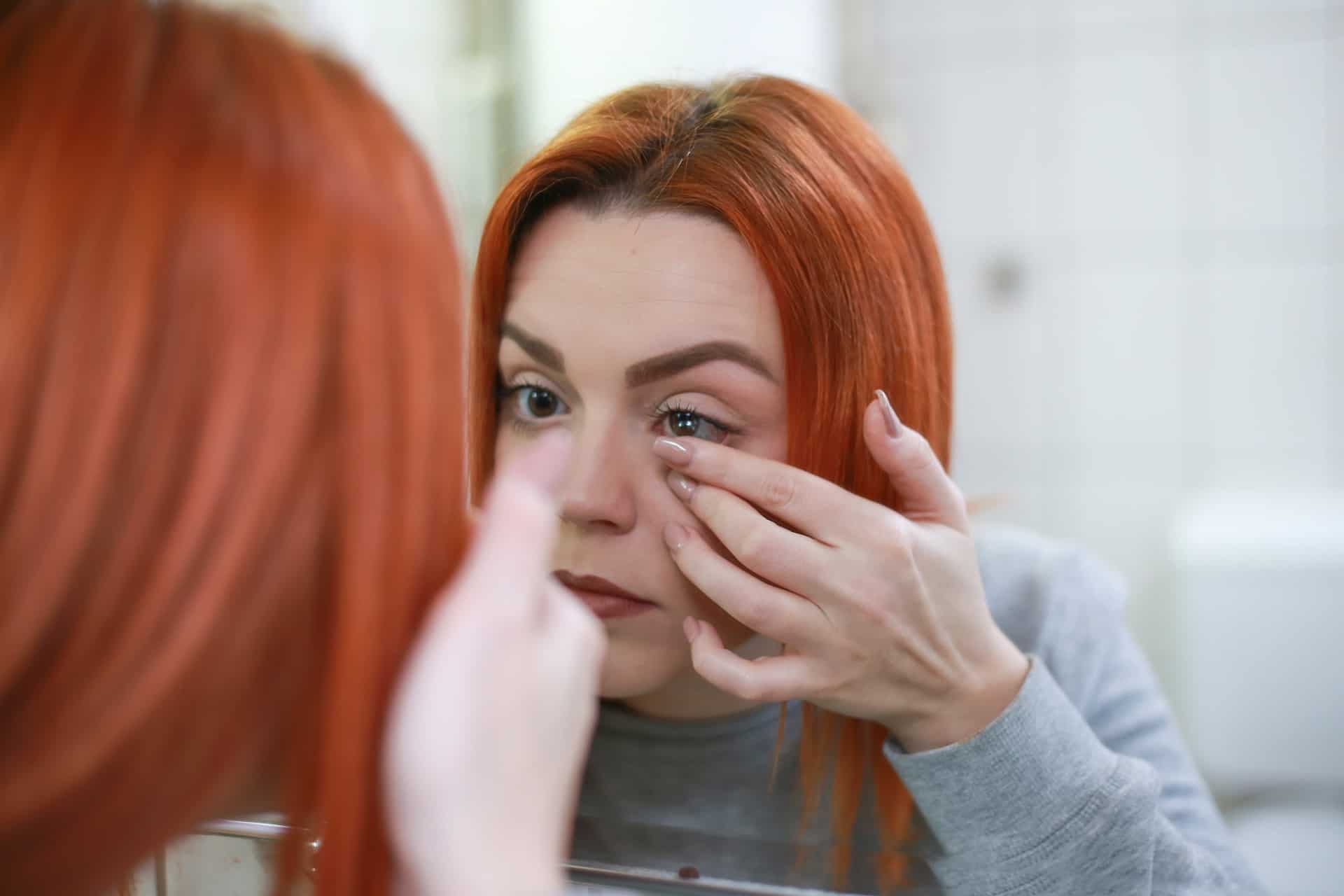



5. Volunteer More Often on Your Own Terms
This fifth and final method is probably the one you will like the least, but it is also the most effective for beating your anxiety long-term.
Volunteering in class – to read aloud, to answer a question, to ask a question, to present your project first, etc. is the fastest way to beat your anxiety.
This is a form of exposure therapy; you expose yourself to your phobia at a slow and healthy pace.
By volunteering more often in class, you’re helping yourself in two major ways:
- You are treating yourself with exposure therapy, at a pace that feels right for you.
- You eliminate the “anticipation jitters”
Something I noticed with my own anxiety was that it was so much worse before I did something, than it was while I actually did it.
Take class presentations for example.
I would always have terrible anxiety for a few days leading up to giving a class presentation.
I’d have trouble sleeping and I’d just generally wallow around in self-pity for days over something that would ultimately take me 3 minutes to actually do.
I would literally feel like I was going to throw up mere seconds before walking to the front of the classroom.
But once I was actually giving the presentation? Once I was actually speaking? Most of the time, my “anticipation jitters” would convert their energy into something more useful. I’d have good energy which would actually help me give a better presentation.
So, what did I learn from this?
Most of the time, we’re fearing the fear itself; that’s basically the very nature of panic disorder.
Our fear is made worse by all the time we spend thinking and anticipating everything that could possibly go wrong; every excruciating, imagined moment of how we might embarrass ourselves in class.
The best way to take control of this is to become accustomed to volunteering in class.
It is far less stressful to volunteer than it is to be called upon unwillingly.
And doing so regularly is a form of exposure therapy, so you’re slowly bettering yourself and unlearning the fear each time you do so.
Despite my own panic disorder and presentation anxiety, I used to go out of my way to volunteer to present first when possible.
In fact, I realized that many other students do the same thing; it just feels so much better to face your fears on your own terms.
Trust me on this one, start volunteering just a tiny bit more often in class, and you will reduce your panic attacks at school.




Conclusion
Alright guys, let’s recap what to do when you have a panic attack at school.
School can be a scary place for people with anxiety disorders. It can be a breeding ground for social anxiety, phobias, and panic attacks.
Fortunately, there are a few ways you can reduce your high school panic attacks or your college panic attacks:
- Talk to the Teacher About Your Anxiety in Private
- Create a "Distracting Game" for Yourself
- Recover with a Bathroom Break
- Keep an Excuse Handy
- Volunteer More Often on Your Own Terms
A final bonus recommendation of mine (for anyone aged 18+ only) is a supplement called phenibut.
Phenibut is not for daily use, but can be extremely effective for the occasional bout of moderate to severe stress. I used it sparingly, but found it to be a lifesaver for my most anxious days, like when I had to give presentations. You can learn more about phenibut here.
These tricks got me through both high school and college; now that you know what to do when you have a panic attack at school, hopefully you'll find them as useful as I did.
Best of luck!
